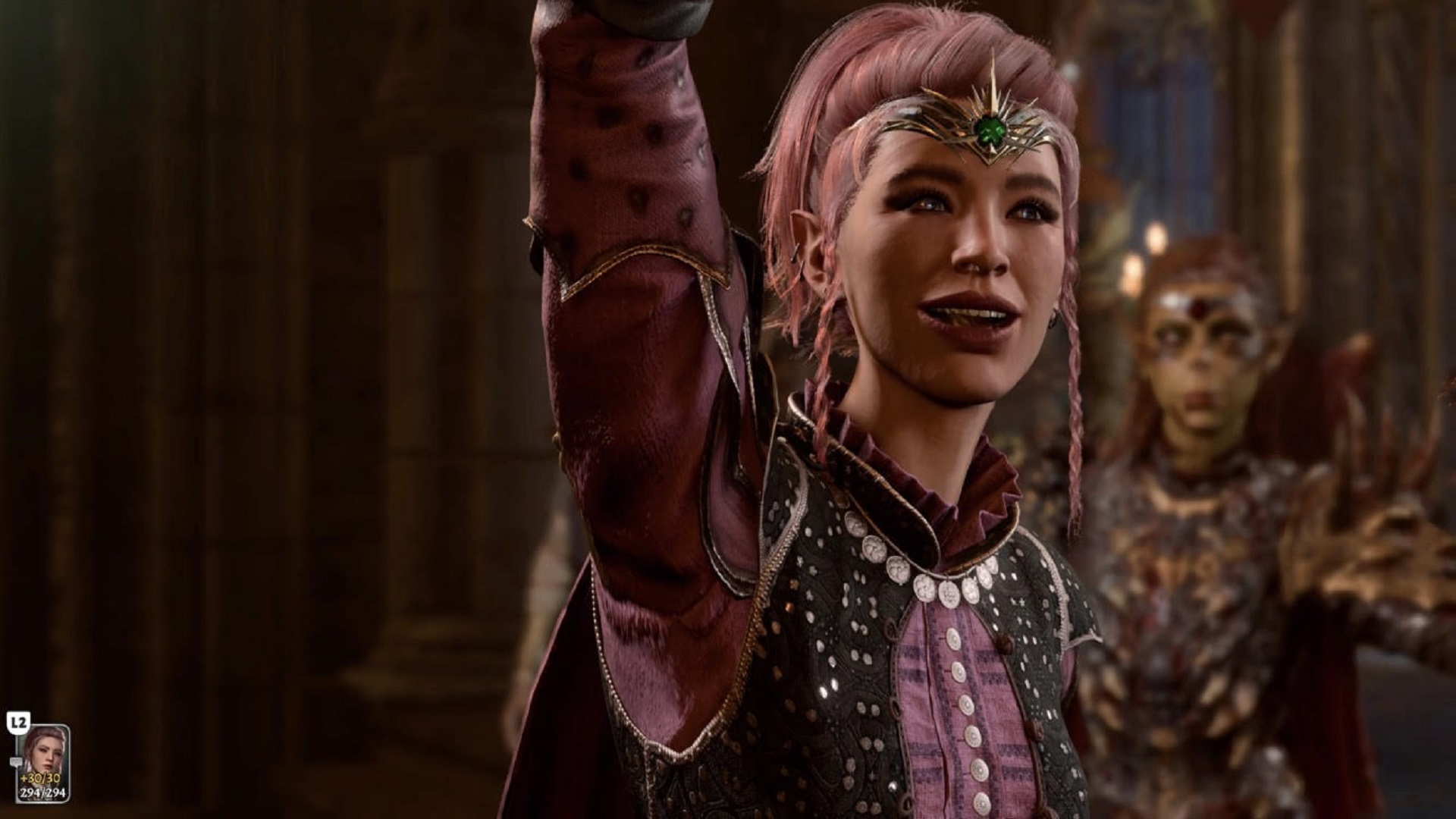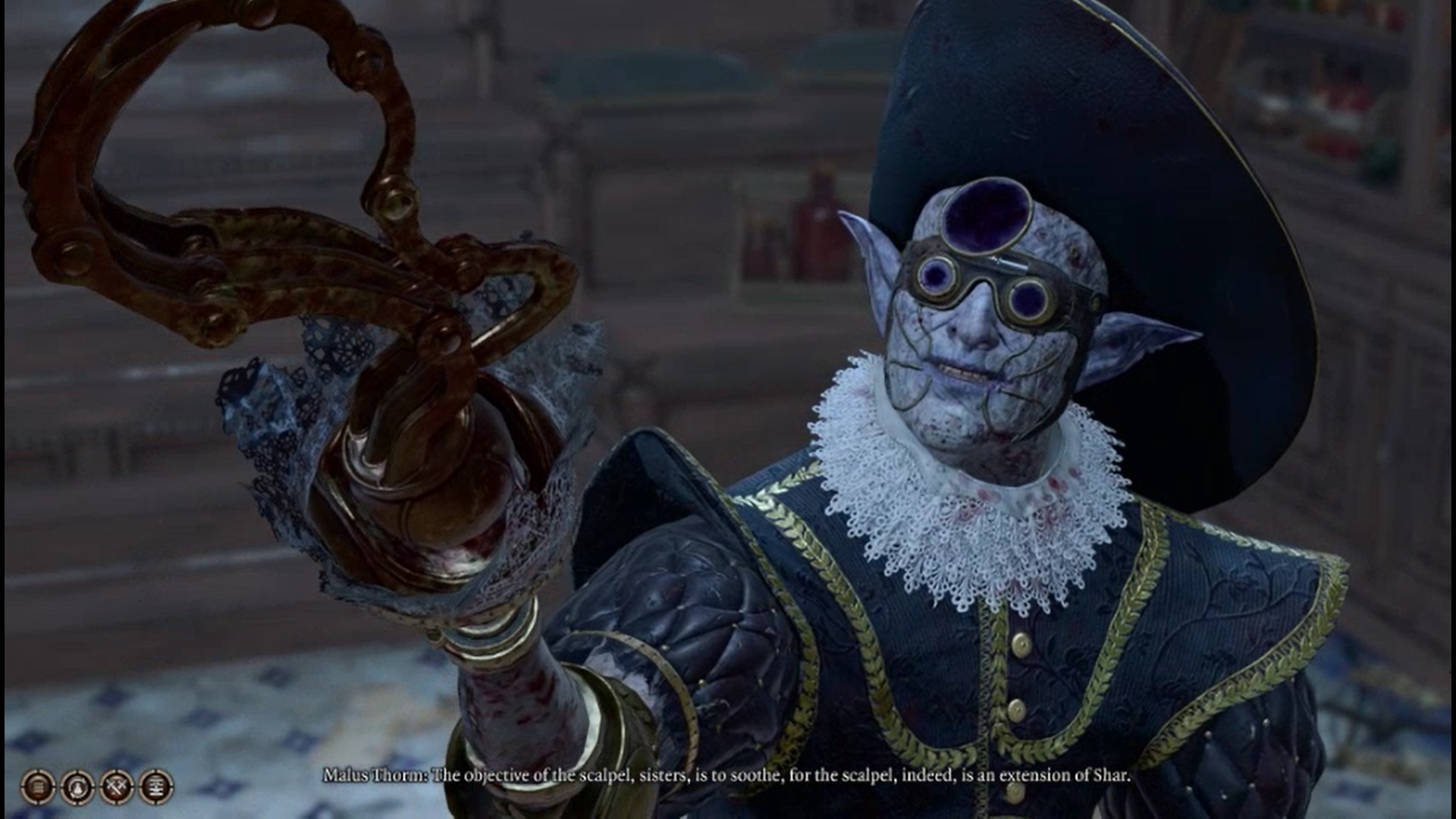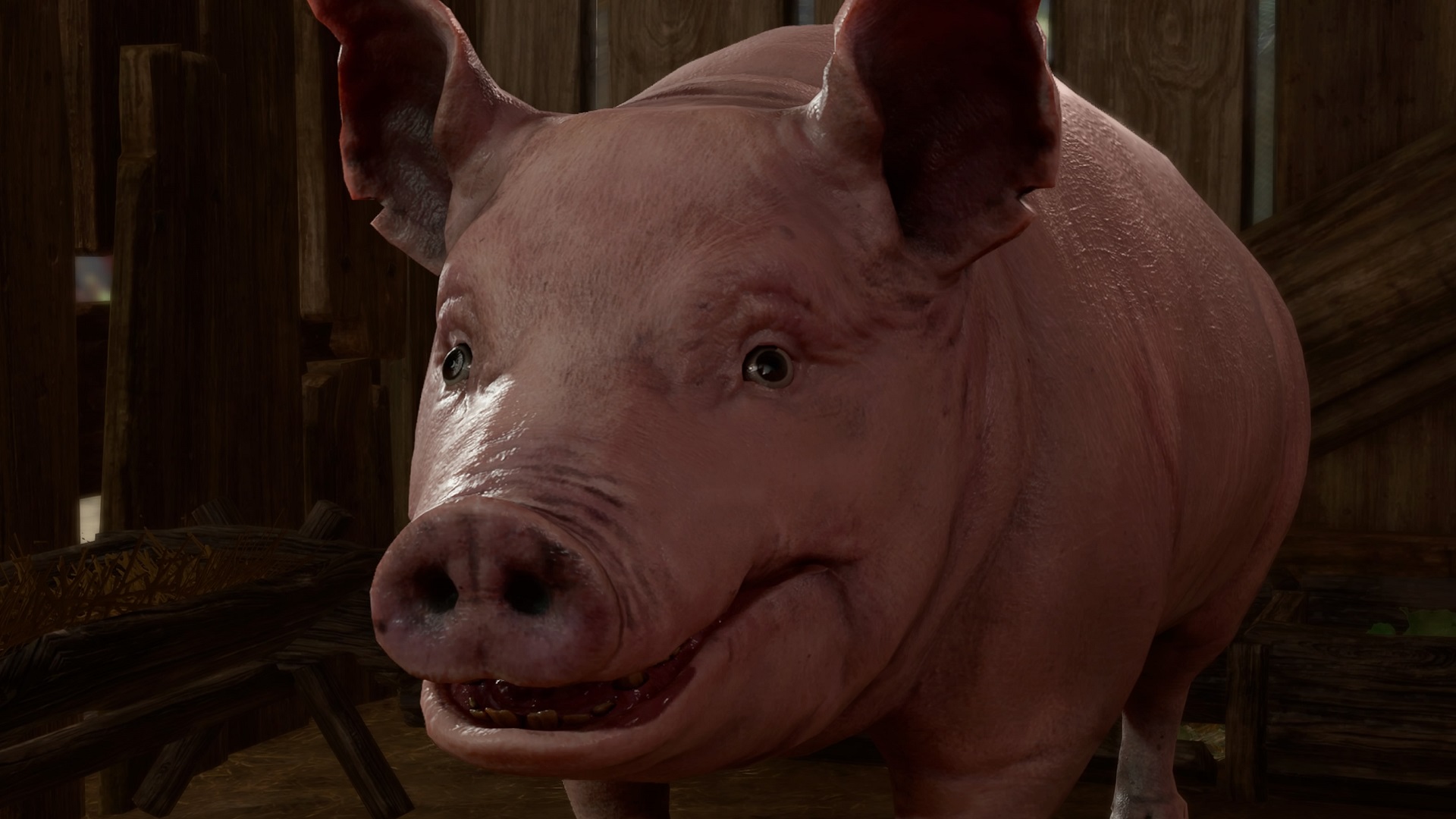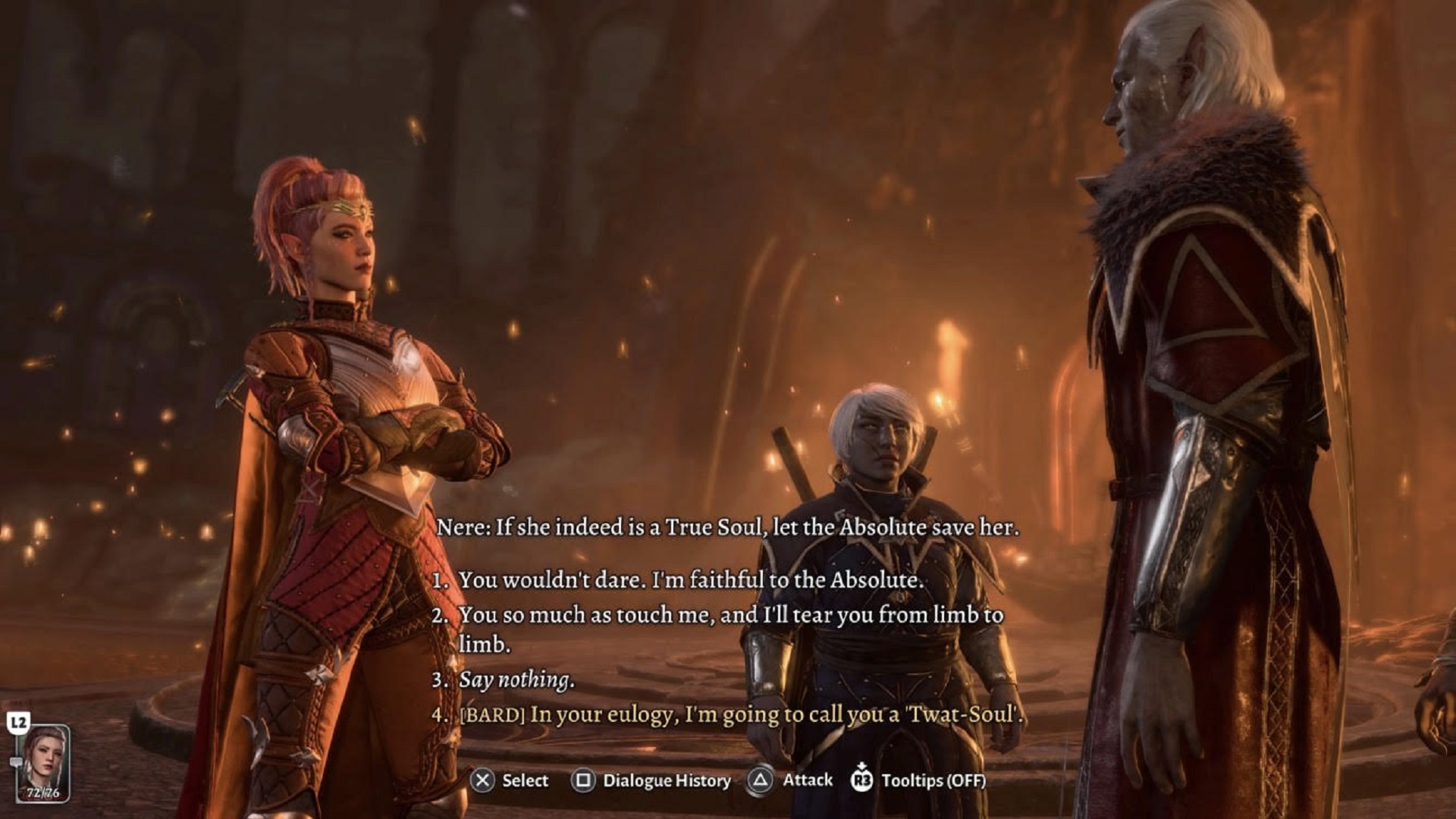As a bard, I've convinced so many bosses to do my job for me in Baldur's Gate 3
Opinion | Talking my way out of fights in Baldur's Gate 3 never gets old

Warning: Spoilers ahead for Act 2 of Baldur's Gate 3
Is there anything better than encountering a frankly disturbing boss and using your powers of persuasion to avoid fighting them all together? Well, what about getting out of a bloody encounter by convincing the said bosses to do your job for you by taking themselves out of the picture? As I made my way through Act 2 of Baldur's Gate 3 to reach the much fabled Moonrise Towers, I stumbled upon The Waning Moon brewhouse. The rundown building had clearly seen better days, as had most of the structures in the area, but what it housed stopped me in my tracks.
Standing inside, I spied a grotesque-looking fellow with a large, protruding belly. His face was covered with a hood, and intestine-like tendrils snaked across his chest as though they were strapped on to support the giant barrel on his back. I readied myself; if video games have taught me anything, it's that he had boss material written all over him. After I cautiously inched my way across the entrance threshold, I quickly noticed he wasn't hostile, nor were any of the zombie patrons that ambled around the room. Without anything else for it, I sidled up to the bar he was tending and reluctantly took a seat.
Before I knew it, I was locked into a battle of a different kind against this ominous character who turned out to be Thisobold Thorm. No blows were traded, no blood was shed. Instead, words became my weapon of choice. At this moment, I was putting my bard skills to good use. With some sleight of hand trickery, I managed to avoid drinking a single drop of the questionable beverage he tried to serve up, and after passing several persuasion checks, I was able to not only get useful information out of him, but I also succeeded in getting him to drink enough to burst. His love for drink was his downfall. Who knew a conversation with me could be so deadly?
Go bard, or go battle


Interviewing animals in Baldur's Gate 3 is my new favorite RPG pastime
Deciding to play as a bard during my first Baldur's Gate 3 playthrough has absolutely paid off in more ways than one. As a player who loves to use persuasive skills to my advantage and talk my way out of dangerous scenarios, I was instantly drawn to the bard life. Plus, playing a lute at a moment's notice never loses its charm. But I've constantly been impressed by just how much it can influence the direction of my journey in the world Larian has brought to life. So many dialogue options have fed into my bard persona, and many occasions have popped up where it's gotten me out of dicey situations. Where I got to see this really shine was in Act 2, where, just like my big bellied bartender, I got to convince several bosses to essentially do my job for me and save me the hassle.
One of the most memorable instances was when I came across the nightmarish House of Healing. After encountering a few unsettling nurses tending to corpses, I was soon witness to a most gruesome scene. A doctor by the name of Malus Thorm stood at the center of an operating theater, torturing a very distressed patient. Complete with sharp mechanical claw hands, the unhinged doctor also had all the makings of a formidable foe, and I didn't fancy going up against him if I could possibly help it. Given how my encounter with Thisobold played out, I hoped to do much the same with this unnerving doc. Once we began conversing, a persuasion check popped up that I absolutely had to take. A successful dice roll led to one very stabby end for Malus, but not my hands. All I had to do was sit back and watch.

In fact, I succeeded at wiping out all of the Thorm 'siblings' in Act 2 through dialogue alone, which made the experience of role-playing as a bard all the more rewarding and immersive. It didn't stop there, either. During a quest in the Gauntlet of Shar, I even managed to convince a powerful boss to kill their own minions and then take themselves out of the equation, leaving me to walk away completely unscathed. Silver-tongue or what? There have been many occasions where the class-specific dialogue has gotten me out of a lot of trouble - and sometimes put me right in it when some choice worlds didn't go over so well (see above).
Sign up to the GamesRadar+ Newsletter
Weekly digests, tales from the communities you love, and more
Baldur's Gate 3 is packed full of possibilities, and there's no shortage of routes to take and discoveries to make. But its biggest strength is the agency it gives you to shape your own journey. It really lives up to its genre as a true role-play experience, and I absolutely love that it allows me to talk my way out of boss fights as bard. I also love that many other players have putting their own skills to use, like our very own Austin Wood who used charisma to win over the bosses as a Paladin. It makes perfect sense that a bard would be able to use their words to win. After all, I have to live to regale others of my adventures through song. It wouldn't do to perish at the hands of a mighty foe before the world can hear my next ballad.
Here's why your first Baldur's Gate 3 playthrough should be a bard, D&D's best-worst class.

I started out writing for the games section of a student-run website as an undergrad, and continued to write about games in my free time during retail and temp jobs for a number of years. Eventually, I earned an MA in magazine journalism at Cardiff University, and soon after got my first official role in the industry as a content editor for Stuff magazine. After writing about all things tech and games-related, I then did a brief stint as a freelancer before I landed my role as a staff writer here at GamesRadar+. Now I get to write features, previews, and reviews, and when I'm not doing that, you can usually find me lost in any one of the Dragon Age or Mass Effect games, tucking into another delightful indie, or drinking far too much tea for my own good.


